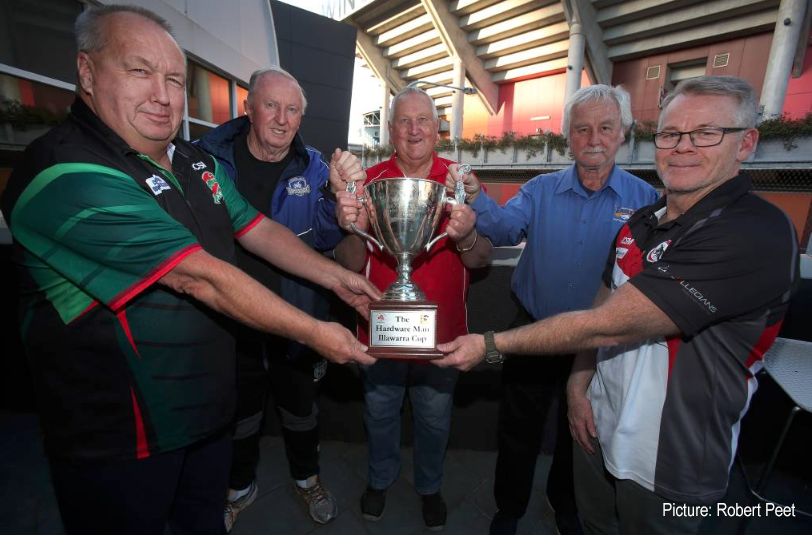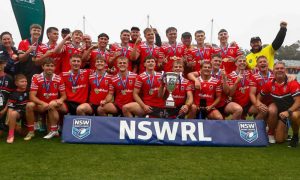Story from Illawarra Mercury
Mitch Jennings
CONFIRMATION the Illawarra Rugby League will implement a salary cap system for the 2019 season sparked plenty of reaction when first revealed in The Mercury on Tuesday.
Most of immediate responses applauded the move. The competition has lost two clubs in the last five years and risked losing more as the gap between the richer and poorer clubs continues to widen.
The other question people were quick to ask was: how on earth are they going to police it? It’s a fair question, and one the IDRL certainly asked of itself. They found the answer in former NRL salary cap auditor Ian Schubert who will police the new cap.
One of the most influential and respected administrators in modern sport, Schubert is widely credited with bringing integrity back into the game post-Super League war in his 18 years keeping big-spending NRL clubs in line – and wielding a big stick when they didn’t.
He was the man who sprung Melbourne for systemic rorting of the salary cap in 2010 – resulting in the Storm being stripped of two premierships – and was also in charge when the Bulldogs were stripped of 37 competition points for the same crime in 2002.
Schubert addressed club delegates at Monday’s board meeting that put the plan in motion, with his resume bringing immediate credibility. He’s the first to admit that the Illawarra League and the NRL are very different beasts, but he’s expecting an even greater level of cooperation from clubs given it’s the wider fate of their competition at stake.
“You’ve got to have a certain willingness of participants to want it to work,” Schubert told Kickoff.
“The NRL clubs wanted to have a salary cap and they got the governing body to put one in. While they still whinge about it at times, it’s good for the competition. It’s the same for the Illawarra comp.
“The game down there’s in danger of losing another team or two and if that happens, you’re in danger of losing the whole group and that’d be catastrophic. If one or two clubs fell out of the NRL it wouldn’t be catastrophic, but if you dropped two clubs out of [the Illawarra League] you haven’t got a lot left.
“The meeting I went to [on Monday] night was quite positive. For it to work there needs to be some controls and rules around it that not everyone was going to fall in love with but I’ve got to say the big clubs were open to it and it feels like they’ll support it which is good.
“It won’t be too onerous in my view, a couple of them will say it will be, but when they all get used to how it works it’ll be fine.”
The implementation of the plan is sure to be looked at closely by the CRL, while representatives from the Newcastle, Central Coast and Canberra competitions are also watching with interest. Schubert is confident the IDRL model could have application beyond the Illawarra.
“It may have and there’s nothing better than being a test case because you get to explore different things in it,” Schubert said.
“Even if we don’t get it 100 per cent right in that first year you don’t throw it out. You just tweak it a little bit until you get exactly what you want but it’s very close to what I think will be the final outcome.
“The points system might vary a little bit as a tweak over time and the figures might be tweaked but I think it’s the basis of a really good system that will help the sustainability of all the clubs.”
It’s also hoped the new system will allow the IDRL to attract a long-desired eighth team into the league after being reduced to just six in 2014-15 before the return of Berkeley in 2016.
“If you control the distribution of talent to a degree where everyone feels they can be competitive, you may even pick up [another club],” Schubert said.
“If they can see the governing body’s doing everything in its power and being supported by the vast majority of the clubs, it becomes a viable proposition for another club to come in and that’s good for everybody.
“It’s particularly good for the volunteers, the supporters and the corporate people behind them because it gives them some hope that they’re going to be competitive. If this goes some small way to making that happen, it’s a very, very positive thing.”
It’s a sentiment echoed by Corrimal president Dave Adams who says the plan has already buoyed the spirits of the Cougars club.
“We’ve still got a lot of work to do to raise funds, we’re one of four clubs out there not backed by a licensed club, but it certainly allows us to sell it to our supporters and sponsors that they’re money isn’t wasted,” Adams said.
“Like all clubs you have a [specific] budget but when you know, at the end of the day, that clubs are able to spend a lot more than you it becomes frustrating and it deters a lot of volunteers and sponsors.
“I’m seven years in as president and I was getting to the end of my tether in the sense that I couldn’t see it changing, no matter how hard we worked.
“Now we can move with a bit more confidence that, if we go out there and work hard, we can get a side on the field that will be competitive.”








